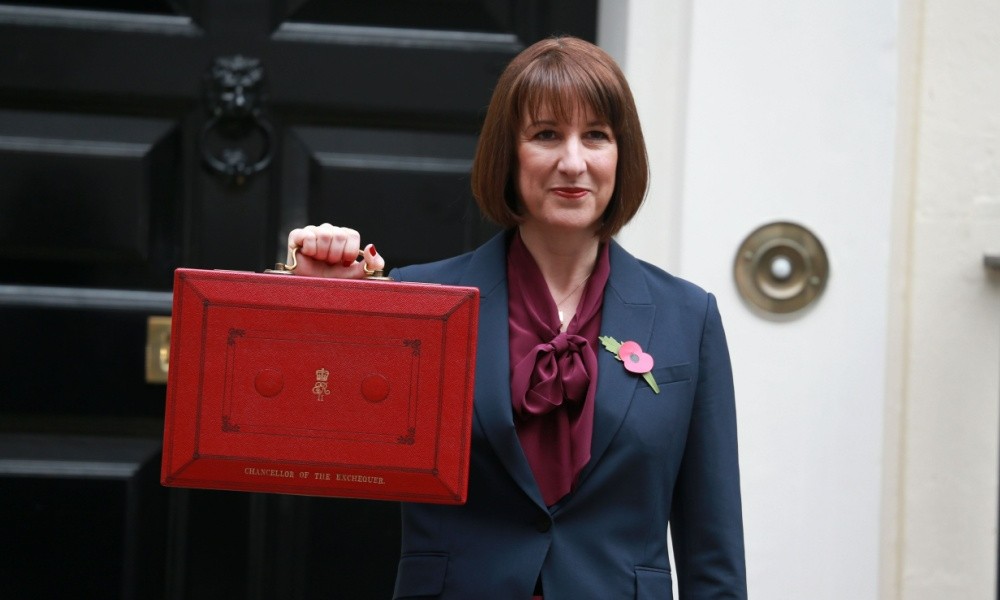On 30th October, Chancellor Rachel Reeves presented a historic Autumn Budget to Parliament – the Labour Party’s first Budget in over 14 years and the first to be delivered by a woman.
The Chancellor said that this Budget will restore stability to public finances and rebuild public services, while the Office for Budget Responsibility (OBR) noted that it involves:
- Spending increasing by almost £70 billion a year for the next 5 years
- Taxation rising by around £36 billion a year
- Borrowing still remaining above £70 billion a year in 2029–2030
Roughly half of the spending increase will be funded by increasing taxes – mainly capital taxes and employer NICs – with the other half mostly funded by additional borrowing.
The Chancellor’s opportunities to raise taxes were limited by Labour’s manifesto pledges to not increase rates for Income Tax, VAT, Corporation Tax, or employee NICs for working people.
However, this means the burden of providing more funds for the Treasury falls on other taxes.
Employer NICs
The majority of the additional revenue will be raised through changes to employer NICs from 2025–2026. Employees have benefited from National Insurance Contribution cuts this year, but employers will have a less favourable deal from 6th April 2025.
From this date, the rate of Class 1 employer NICs will increase from 13.8% to 15%, and the threshold for paying them will fall from earnings of £9,100 a year to £5,000 a year.
This will be partially mitigated for some employers by the Employment Allowance increasing from £5,000 to £10,500, effectively acting as an employer NIC credit to reduce liability.
Capital Gains Tax
As of the announcement on 30th October 2024, the main rates for Capital Gains Tax (CGT) were increased with immediate effect. From this date, disposals of assets with profits exceeding the annual exempt amount of £3,000 will be subject to the following CGT rate rises:
- From 10% to 18% for non-taxpayers and basic rate taxpayers
- From 20% to 24% for higher rate and additional rate taxpayers
- From 20% to 24% for trustees and personal representatives
Meanwhile, the rates for Business Asset Disposal Relief (BADR) and Investors’ Relief (IR) will increase from 10% to 14% from 6th April 2025, then to 18% from 6th April 2026.
The CGT rates that apply to carried interest (the share of profits above a certain level for investment fund managers) will also increase from 18% and 28% to a single 32% rate next year.
The current rates for residential property disposals will remain the same at 18% and 24%.
Inheritance Tax
Despite previous speculation, the government will not be abolishing Inheritance Tax (IHT). In fact, the current threshold freeze is set to continue for a further 2 years until April 2030.
While bands will remain the same for personal estates, there will be changes to IHT for Agricultural Property Relief (APR) and Business Property Relief (BPR) from April 2026.
Relief for business and agricultural assets will be capped at £1 million with a new IHT rate of 20% charged above that. Relief for qualifying shares on the Alternative Investment Market (AIM), which do not benefit from the APR/BRP allowance, will be halved to 50%.
There were many suggestions for pension tax relief reforms, but the only change is that IHT will apply to pension wealth from 6th April 2027. Unused pension funds and benefits that are transferable at death will be considered part of the deceased’s estate for IHT purposes.
This means that pension scheme administrators will be liable for reporting unused pension funds and death benefits to HMRC and paying any Inheritance Tax due.
Are you prepared for UK tax changes?
If any of these tax changes are likely to affect you, or any other policies set out by the Budget that haven’t been mentioned in this tax overview, be sure to seek professional advice to help you prepare for the new tax environment as swiftly as possible.
Some tax changes will take effect sooner and others in a couple of years’ time, so it’s essential to assess your current circumstances for short-term effects and also get a long-term plan in order.
If you need help adjusting your savings, investments, and tax plans under the new and incoming policies, why not contact our insightful team of accountants in Barnsley?
Here at gbac, we provide a variety of financial services that could help you optimise your tax reliefs while complying with HMRC. To learn more, get in touch by calling 01226 298 298, or send an email to info@gbac.co.uk and we will get back to you promptly with more information.
